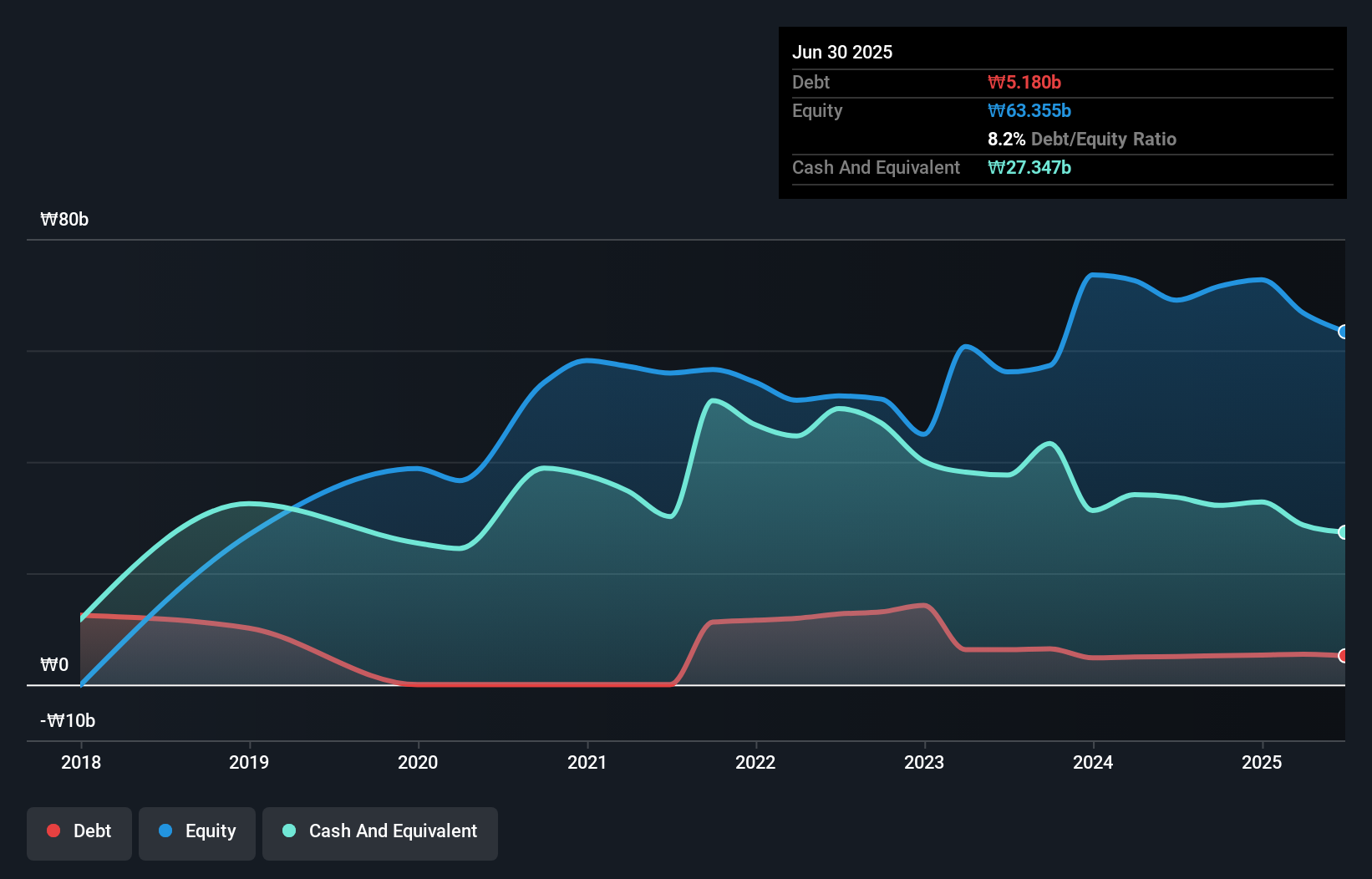Some say volatility, rather than debt, is the best way to think about risk as an investor, but Warren Buffett famously said that 'Volatility is far from synonymous with risk.' It's only natural to consider a company's balance sheet when you examine how risky it is, since debt is often involved when a business collapses. As with many other companies Saltlux Inc. (KOSDAQ:304100) makes use of debt. But the real question is whether this debt is making the company risky.
When Is Debt Dangerous?
Generally speaking, debt only becomes a real problem when a company can't easily pay it off, either by raising capital or with its own cash flow. Part and parcel of capitalism is the process of 'creative destruction' where failed businesses are mercilessly liquidated by their bankers. However, a more usual (but still expensive) situation is where a company must dilute shareholders at a cheap share price simply to get debt under control. By replacing dilution, though, debt can be an extremely good tool for businesses that need capital to invest in growth at high rates of return. The first thing to do when considering how much debt a business uses is to look at its cash and debt together.
How Much Debt Does Saltlux Carry?
The chart below, which you can click on for greater detail, shows that Saltlux had ₩5.18b in debt in June 2025; about the same as the year before. However, it does have ₩27.3b in cash offsetting this, leading to net cash of ₩22.2b.

How Strong Is Saltlux's Balance Sheet?
The latest balance sheet data shows that Saltlux had liabilities of ₩9.18b due within a year, and liabilities of ₩12.0b falling due after that. On the other hand, it had cash of ₩27.3b and ₩2.89b worth of receivables due within a year. So it actually has ₩9.02b more liquid assets than total liabilities.
This short term liquidity is a sign that Saltlux could probably pay off its debt with ease, as its balance sheet is far from stretched. Succinctly put, Saltlux boasts net cash, so it's fair to say it does not have a heavy debt load! The balance sheet is clearly the area to focus on when you are analysing debt. But it is Saltlux's earnings that will influence how the balance sheet holds up in the future. So when considering debt, it's definitely worth looking at the earnings trend. Click here for an interactive snapshot.
View our latest analysis for Saltlux
Over 12 months, Saltlux made a loss at the EBIT level, and saw its revenue drop to ₩40b, which is a fall of 8.2%. That's not what we would hope to see.
So How Risky Is Saltlux?
We have no doubt that loss making companies are, in general, riskier than profitable ones. And we do note that Saltlux had an earnings before interest and tax (EBIT) loss, over the last year. Indeed, in that time it burnt through ₩6.5b of cash and made a loss of ₩5.9b. But the saving grace is the ₩22.2b on the balance sheet. That means it could keep spending at its current rate for more than two years. Overall, its balance sheet doesn't seem overly risky, at the moment, but we're always cautious until we see the positive free cash flow. When analysing debt levels, the balance sheet is the obvious place to start. But ultimately, every company can contain risks that exist outside of the balance sheet. For example Saltlux has 2 warning signs (and 1 which makes us a bit uncomfortable) we think you should know about.
If, after all that, you're more interested in a fast growing company with a rock-solid balance sheet, then check out our list of net cash growth stocks without delay.
New: Manage All Your Stock Portfolios in One Place
We've created the ultimate portfolio companion for stock investors, and it's free.
• Connect an unlimited number of Portfolios and see your total in one currency
• Be alerted to new Warning Signs or Risks via email or mobile
• Track the Fair Value of your stocks
Have feedback on this article? Concerned about the content? Get in touch with us directly. Alternatively, email editorial-team (at) simplywallst.com.
This article by Simply Wall St is general in nature. We provide commentary based on historical data and analyst forecasts only using an unbiased methodology and our articles are not intended to be financial advice. It does not constitute a recommendation to buy or sell any stock, and does not take account of your objectives, or your financial situation. We aim to bring you long-term focused analysis driven by fundamental data. Note that our analysis may not factor in the latest price-sensitive company announcements or qualitative material. Simply Wall St has no position in any stocks mentioned.
About KOSDAQ:A304100
Saltlux
Operates as machine learning and natural language processing in South Korea.
Excellent balance sheet with minimal risk.
Market Insights
Community Narratives



